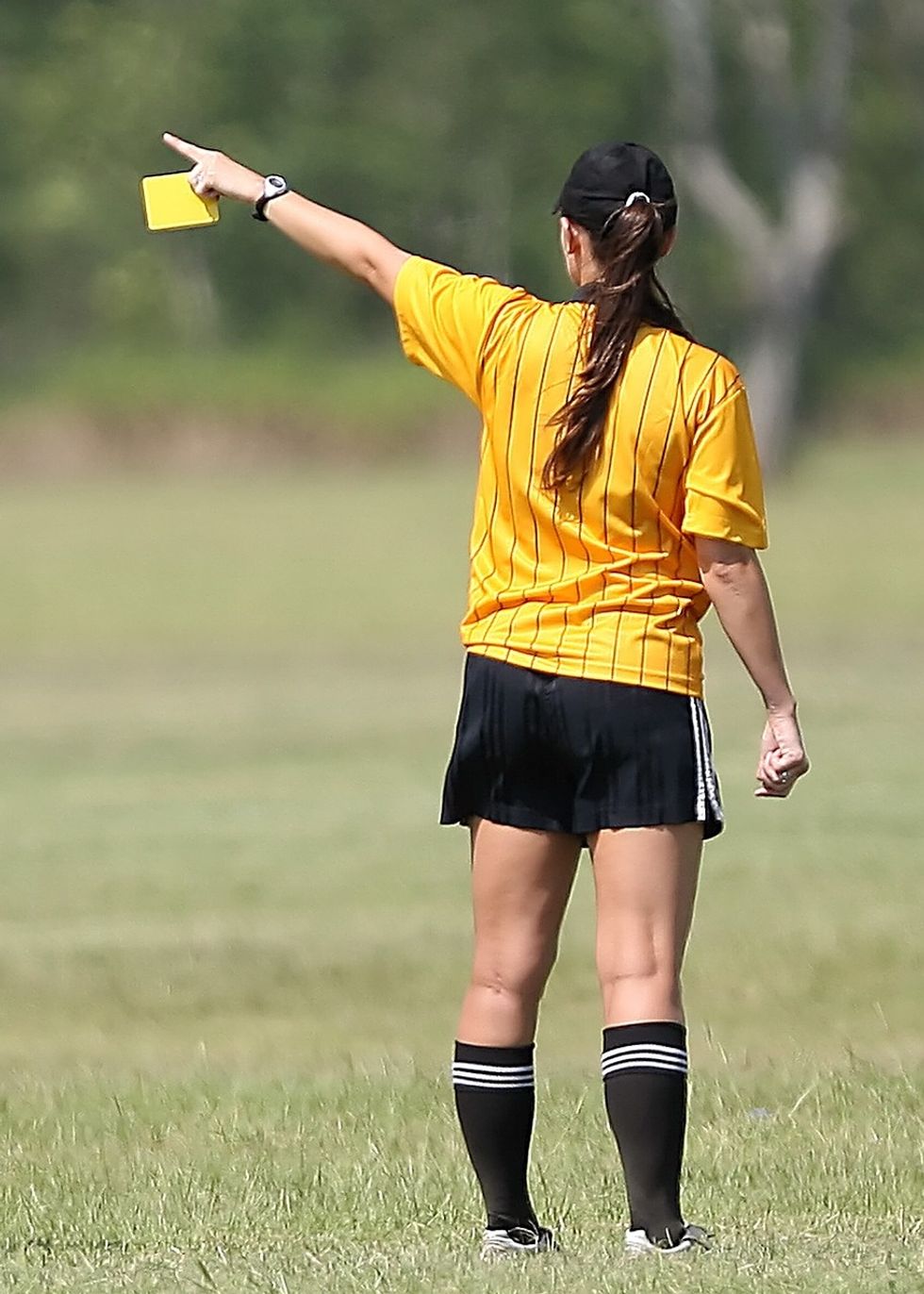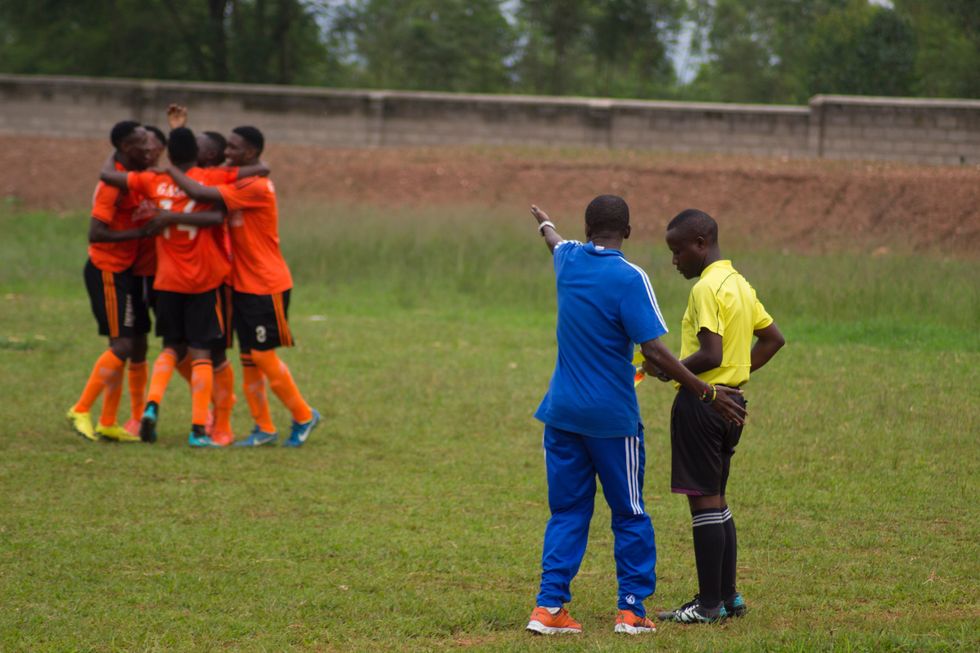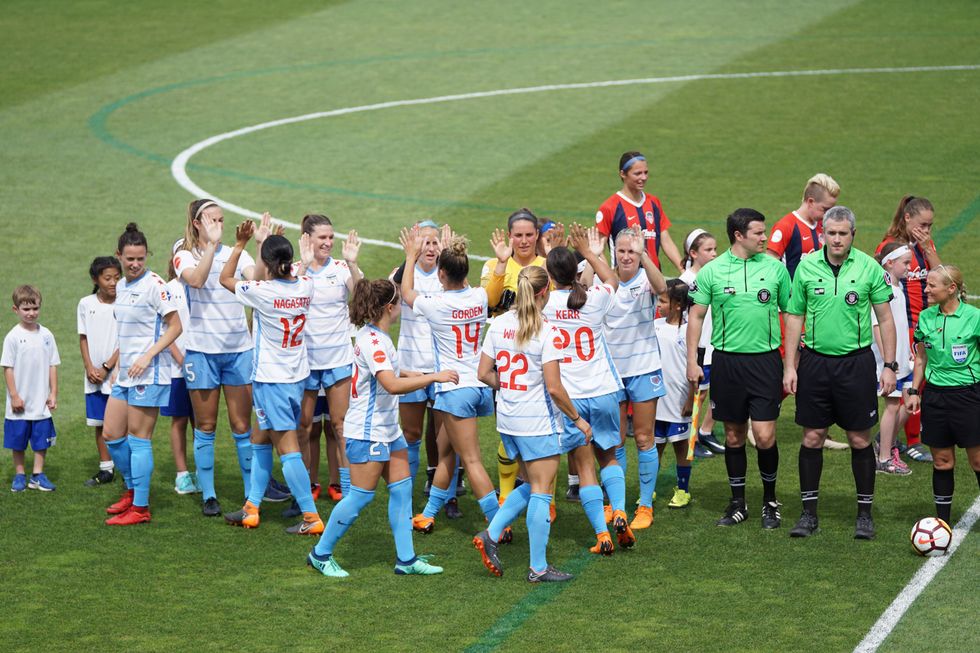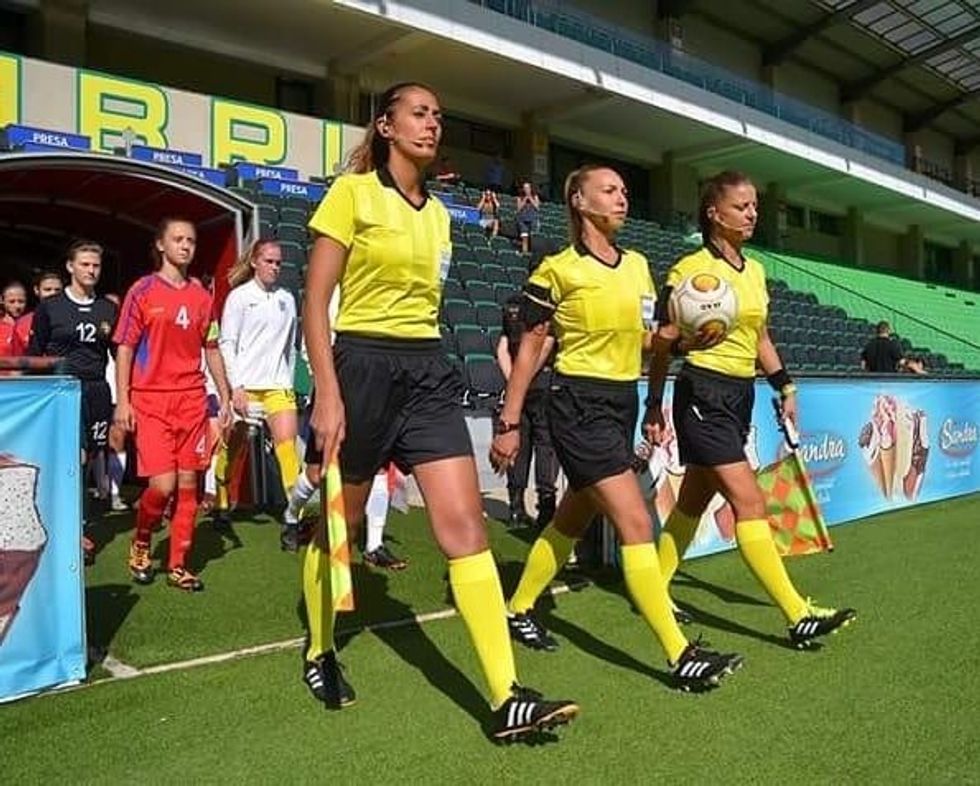When I first decided to follow my father and sign up for a soccer referee training course, I was a shy, unconfident kid who knew little about the job, except that it involved blowing a whistle and running around a field.
I soon learned that being a soccer referee meant much more: it was the responsibility of running a soccer game and making sure it was safe, fun, fair, and running smoothly.
I was super nervous during my first few games, even though I was just an assistant referee for nine-year-old players. Slowly, over many seasons, I found my voice. I went from being too shy and nervous to blow the whistle to have the confidence to tell off a grown man.
Being a referee has done wonders for my confidence. Here are nine reasons you should consider signing up for a referee course yourself!
1. You can get paid to ref!

Broke college kids, you heard me right! The pay depends on your town and the age level of the players, but I can almost guarantee that you'll be paid more than your current minimum wage job.
2. You’ll learn how to make a split-second decision and own it.

When you're running down the field and you see a foul occur, you have only a few seconds to decide to call it or not. Your first few games, you WILL be nervous. You WILL wonder if it's really a foul or not. But you just have to make a decision and go with it.
3. You'll learn how to trust yourself.

Even as a new referee, you'll probably have hours of training under your belt. You probably know how to identify a foul or offside correctly without much thought.
Sometimes, the correct call is a nuance in the laws, and even though you know you're right, everybody will be screaming that you're wrong. Sometimes, you will have to call fouls against the same team over and over because they keep committing them, but the coach will scream that you "have it out for their team."
Trust yourself and make the call!
4. You’ll understand why learning from your mistakes is so important.

You will make mistakes, and some of them will be so severe that they alter the course of the game (ie: incorrectly awarding a goal to a team, causing them to win). But what can you do after the game? Usually, not much. It's easy to feel upset or discouraged after any small or large blunder on the field, but you just have to analyze what you did wrong, figure out how you can do better next time, and let it go.
5. You will learn not to care when you have awkward moments in front of dozens of people.

I can't even remember all the awkward things I've done as a ref. I've accidentally dropped my whistle while everybody was waiting for me to start the game, tripped over myself while running along the sidelines and had my voice crack while talking to a senior ref. Everybody has their awkward moments, and just because you're supposed to be a leader doesn't mean you won't have them either.
6. You’ll realize that no matter what decision you make in life, someone will show dissent. Especially when it’s in the form of twenty or thirty people hurling insults at you from the sidelines while you run by them.

"Ref, what game are YOU watching?"
"Come on ref, don't be stupid! That's right I'm talking to you!"
"This referee team has no idea what they're doing!"
Ultimately, whatever the spectators think DOES. NOT. MATTER. You are the referee, and you are the most knowledgeable person on the field, and this is your game. Eventually you'll find that criticism doesn't even faze you as you continue the game.
This is a HUGE learning moment for you - because you learn to stand your ground while being shouted at by parents, players and coaches.
This is a very difficult skill and repeated practice at this will make you better in life - whether its a job interview, defending your Ph.D. thesis, or presenting next months sales projections to the executive team!
And, of course, practice will make you better.
7. You’ll learn how to keep your composure in difficult situations.

At the end of the game, you might be shaking hands with, making eye contact with, and saying "good game" to a person who absolutely hates your guts at that moment. And with time, you'll gain the confidence to do this.
8. You’ll gain a greater appreciation for the sport.

Soccer can be intense, thrilling, and emotional, even at the kids' level. You'll realize this from seeing the game at a unique angle.
9. You’ll learn to respect officials of all sports.

They have a hard job, they make mistakes, and they're human too!
Overall, being a soccer referee teaches you how to take criticism, and be a leader.
And yes, you can get paid. If you're sold, find a referee course near you!





 man making a coffee lattePhoto by
man making a coffee lattePhoto by  Photo by
Photo by  Photo by
Photo by  Photo by
Photo by 









 Photo by
Photo by 








